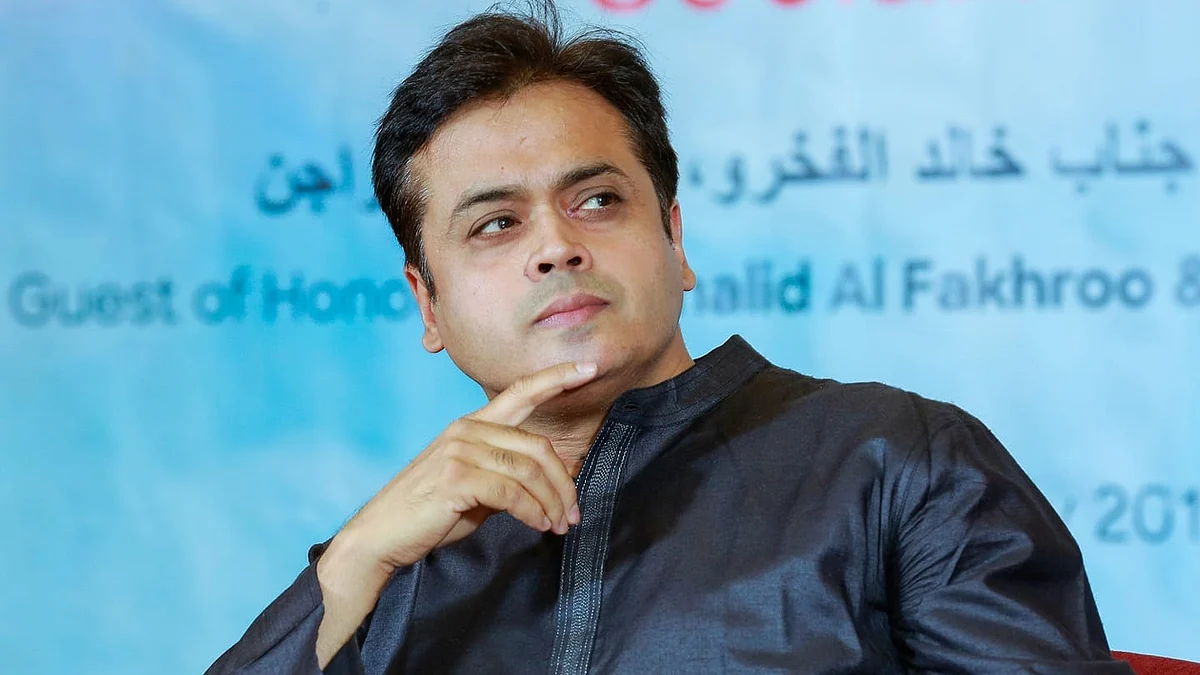When secrets are sacred – unless you're Abhisar Sharma
Popular journalist targeted for calling out Assam CM Himanta Biswa Sarma, with loose cannon Nishikant Dubey getting in on the act

So, here’s the latest spin from the political carnival: Abhisar Sharma, a YouTuber-journalist and popular former news anchor for a major national news channel (who thanks BBC for dubbing him “prominent” and critical) is now the proud subject of an FIR in Assam, filed after he dared question the allocation of 3,000 acres of tribal land to a private company — a fact that staggered even the high court judge hearing the matter — and suggested the state and its chief minister Himanta Biswa Sarma were indulging in communal politics.
All of Sharma's commentary was based on information already available in the public domain, primarily the CM's own comments, but when have facts come in the way of a good FIR? Sharma has obtained temporary reprieve from the Supreme Court, but not a dismissal of charges.
But wait — this performance art of suppression had a supporting act. Enter BJP MP Nishikant Dubey, who decided anonymity is so passé, and thus bluntly leaked what appears to be Sharma’s income tax returns on social media — innocuously hinting that as soon as Sharma began “roaming the streets and abusing Modi/BJP”, his income skyrocketed from Rs 18 lakh to Rs 1.2 crore, before dipping again. The reference, of course, is to Sharma's trenchantly anti-BJP stance.
Confidential tax details are, after all, just weekend reading for MPs, not data protected by privacy laws under India’s Income Tax or Information Technology Acts. Who cares, right? As it happens, ordinary folks do care. For proof, read the comments underneath Dubey's post.
Sharma announced he was filing his own FIR — and tagged the income tax department and Union finance minister Nirmala Sitharaman to ask: off whose desk (or shared USB drive) did this MP get access to top-secret ITR data?
Meanwhile critics pointed out — quite reasonably — that this isn’t just tone-deaf, it’s potentially criminal. Sharing someone’s tax returns is, let’s say, frowned upon, if not flat-out illegal. And to be absolutely clear: even if the documents Dubey posted weren’t Sharma’s at all but belonged to somebody else, the mere act of disclosing a citizen’s returns is itself unlawful.
Now let’s pivot dramatically to the other side of the irony spectrum. While journalists get ITRs splatted on feeds, above them float twin black holes of opacity: Prime Minister Narendra Modi and Smriti Irani, whose academic credentials remain safely backstage.
In Modi’s case, the Delhi High Court threw out a CIC order demanding his 1978 DU degree records. The court ruled there’s no explicit public interest compelling disclosure — and, bless them, suggested educational records are personal, even for a prime minister.
The peculiar part? Modi himself declared in sworn election affidavits that he had a BA from Delhi University and an MA from Gujarat University. Yet, strangely enough, no institution seems in any rush to proudly hail him as an alumnus. It’s not every day a university shrugs off the chance to advertise the sitting PM as a former student. Unless, of course, it doesn’t want the awkward responsibility of validating something it cannot confirm.
To be fair, these degrees may well exist exactly as stated; nobody is claiming they were conjured out of thin air. But the refusal to release records, coupled with the institutions’ conspicuous silence, feeds speculation far more than it quells it. Transparency, after all, is the easiest antidote to rumour.
Similarly, Irani found a judicial shield when the high court set aside CIC demands for her Class X and XII marksheets held by CBSE. The justification? No statutory requirement links her education to holding office — and again, privacy wins — even though she once claimed, somewhat flamboyantly, to have a “degree from Yale” which turned out to be a week-long leadership workshop certificate, not a bona fide degree.
Let’s be clear: journalists like Sharma are under fire, their finances broadcast to shame or intimidate, while elected officials hold degrees or academic omissions sacred — so much so that courts respect their privacy.
Is it me, or is there a delicious note of hypocrisy? One hand accuses the messenger; the other shields the messengers behind cloaks of “privacy”. Journalistic audacity gets chained; political opacity gets bail.
If India were a theatre, this would be farce directed by Kafka. Yet, it’s our daily news cycle. So here’s a toast to selective transparency: shame the critic by outing his tax return, but decline to disclose your own certificates on grounds of privacy. Bravo — what a performance.
Follow us on: Facebook, Twitter, Google News, Instagram
Join our official telegram channel (@nationalherald) and stay updated with the latest headlines
